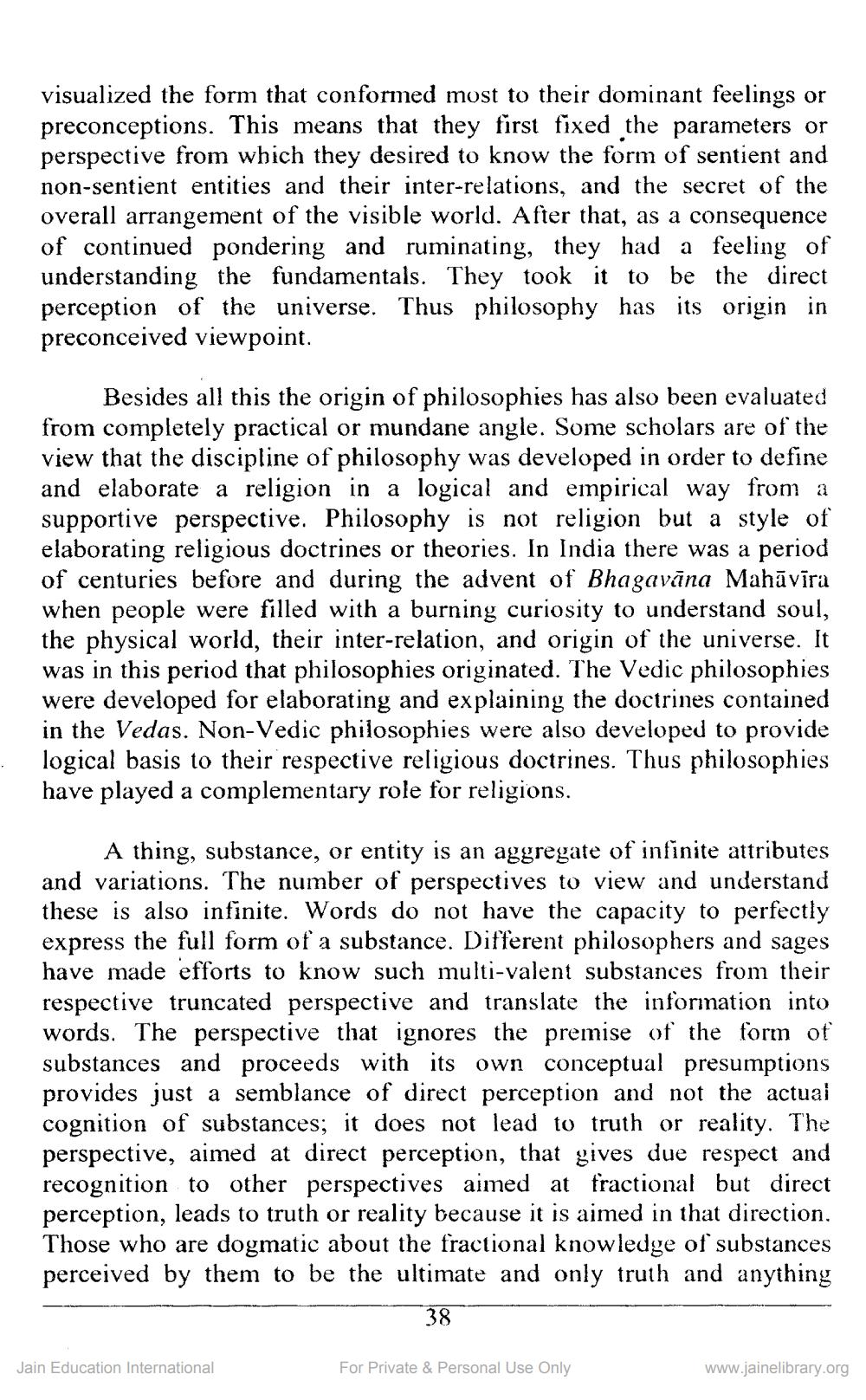________________
visualized the form that conformed most to their dominant feelings or preconceptions. This means that they first fixed the parameters or perspective from which they desired to know the form of sentient and non-sentient entities and their inter-relations, and the secret of the overall arrangement of the visible world. After that, as a consequence of continued pondering and ruminating, they had a feeling of understanding the fundamentals. They took it to be the direct perception of the universe. Thus philosophy has its origin in preconceived viewpoint.
Besides all this the origin of philosophies has also been evaluated from completely practical or mundane angle. Some scholars are of the view that the discipline of philosophy was developed in order to define and elaborate a religion in a logical and empirical way from a supportive perspective. Philosophy is not religion but a style of elaborating religious doctrines or theories. In India there was a period of centuries before and during the advent of Bhagavāna Mahāvīra when people were filled with a burning curiosity to understand soul, the physical world, their inter-relation, and origin of the universe. It was in this period that philosophies originated. The Vedic philosophies were developed for elaborating and explaining the doctrines contained in the Vedas. Non-Vedic philosophies were also developed to provide logical basis to their respective religious doctrines. Thus philosophies have played a complementary role for religions.
A thing, substance, or entity is an aggregate of infinite attributes and variations. The number of perspectives to view and understand these is also infinite. Words do not have the capacity to perfectly express the full form of a substance. Different philosophers and sages have made efforts to know such multi-valent substances from their respective truncated perspective and translate the inforination into words. The perspective that ignores the premise of the form of substances and proceeds with its own conceptual presumptions provides just a semblance of direct perception and not the actual cognition of substances; it does not lead to truth or reality. The perspective, aimed at direct perception, that gives due respect and recognition to other perspectives aimed at fractional but direct perception, leads to truth or reality because it is aimed in that direction. Those who are dogmatic about the fractional knowledge of substances perceived by them to be the ultimate and only truth and anything
38
Jain Education International
For Private & Personal Use Only
www.jainelibrary.org




